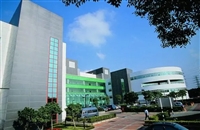EVALUATION KIT AVAILABLE
Click here for production status of specific part numbers.
MAX32665–MAX32668
Low-Power Arm Cortex-M4 with FPU-Based
Microcontroller with Bluetooth 5 for Wearables
General Description
Benefits and Features
● High-Efficiency Microcontroller and Audio DSP for
DARWIN is a new breed of low-power microcontrollers
built to thrive in the rapidly evolving Internet of Things
(IoT). They are smart, with the biggest memories in their
class and a massively scalable memory architecture. They
run forever, thanks to wearable-grade power technology.
They are durable enough to withstand the most advanced
cyberattacks. DARWIN microcontrollers are designed
to run any application imaginable—in places where you
would not dream of sending other microcontrollers.
Wearable and Hearable Devices
• Arm Cortex-M4 with FPU Up to 96MHz
• Optional Second Arm Cortex-M4 with FPU
Optimized for Data Processing
• Low-Power 7.3728MHz System Clock Option
• 1MB Flash, Organized into Dual Banks 2 x 512KB
• 560KB (448KB ECC) SRAM; 3 x 16KB Cache
• Optional Error Correction Code (ECC-SEC-DED)
for Cache, SRAM, and Internal Flash
Generation UB microcontrollers are designed to han-
dle the increasingly complex applications demanded by
today's advanced battery-powered devices and wirelessly
connected devices, while providing robust hardware secu-
● Bluetooth 5 Low Energy Radio
• Up to 2Mbps Data Throughput
• Long Range (125kbps and 500kbps)
• Rx Sensitivity: -95dbm; Tx Power: +9.5dbm
• Single-Ended Antenna Connection
®
rity and Bluetooth 5 Low Energy (BLE) radio connectivity.
The MAX32665–MAX32668 UB class microcontrollers
● Power Management Maximizes Operating Time for
Battery Applications
®
are advanced systems-on-chips featuring an Arm
®
Cortex -M4 with FPU CPU for efficient computation of
• Integrated SIMO SMPS for Coin-Cell Operation
• Dynamic Voltage Scaling Minimizes Active Core
Power Consumption
• 27.3μA/MHz at 3.3V Executing from Cache
• 12.3μA at 3.3V Retention Current for 32KB SRAM
• Selectable SRAM Retention in Low Power Modes
with RTC Enabled
complex functions and algorithms with integrated power
management. They also include the newest generation
Bluetooth 5 Low Energy radio with support for long range
(4x) and high throughput (2Mbps) and Maxim's best-in-
class hardware security suite trust protection unit (TPU).
The devices offer large on-board memory with 1MB flash
and up to 560KB SRAM that can be configured as 448KB
SRAM with error correction coding (ECC). Split flash banks
of 512KB each support seamless over the air upgrades,
adding an additional degree of reliability. Memory scalabil-
ity of data (SRAM) and code (flash) space is supported by
two SPI execute-in-place (SPIX) interfaces.
● Multiple Peripherals for System Control
• Three QSPI Master/Slave with Three Chip Selects
2
Each, Three 4-Wire UARTs, Three I C Master/Slave
• QSPI (SPIXF) with Real-Time Flash Decryption
• QSPI (SPIXR) RAM Interface Provides SRAM
Expansion
Multiple high-speed interfaces are supported including
HS-USB, secure digital interface (SD, SDIO, MMC, SDHC,
and microSD™), SPI, UART, and I C serial interfaces, and
• 8-Input, 10-Bit Delta-Sigma ADC 7.8ksps
• USB 2.0 HS Engine with Internal Transceiver
• PDM Interface Supports Two Digital Microphones
2
2
an audio subsystem supporting PDM, PCM, I S, and TDM
2
• I S with TDM, Six 32-Bit Timers, Two High-Speed
interfaces. An 8-input, 10-bit ADC is available to moni-
tor analog inputs from external sensors and meters. The
devices are available in 109-bump WLP (0.35mm pitch)
and 121-bump CTBGA (0.65mm pitch) packages.
Timers, 1-Wire Master, Sixteen Pulse Train (PWM)
Engines
• Secure Digital Interface Supports SD3.0/SDIO3.0/
eMMC4.51
● Secure Valuable IP/Data with Hardware Security
• Trust Protection Unit (TPU) with MAA Supports
Fast ECDSA and Modular Arithmetic
• AES-128, -192, -256, DES, 3DES, Hardware
Accelerator
Applications
● Connected Home
● Industrial Sensors
● Payment/Fitness/Medical Wearables
● Telemedicine
• TRNG Seed Generator, SHA-2 Accelerator
• Secure Bootloader
● Gaming Devices
● Hearables
Ordering Information appears at end of data sheet.
19-100411; Rev 0; 10/18










 解析光耦仿真器:升级光耦合器技术的必要性
解析光耦仿真器:升级光耦合器技术的必要性

 英伟达新一代Blackwell GPU过热问题致交付延迟
英伟达新一代Blackwell GPU过热问题致交付延迟

 国产厂商思特威CMOS图像传感器芯片单月出货超1亿颗,技术创新引领行业发展
国产厂商思特威CMOS图像传感器芯片单月出货超1亿颗,技术创新引领行业发展

 台积电5nm和3nm产能利用率达100%,半导体行业景气度持续攀升
台积电5nm和3nm产能利用率达100%,半导体行业景气度持续攀升
